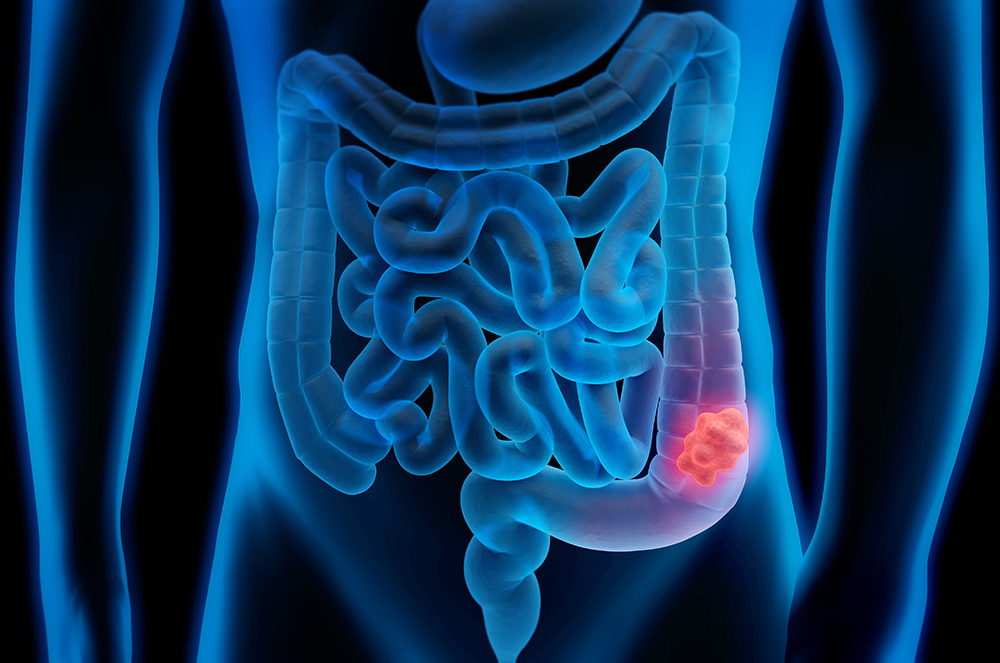Colon cancer involves several types of cancer that arise in the colon from small abnormal growths called polyps. The most common type of colon cancer is called an adenocarcinoma. The colon (large intestine or bowel) is one of the last parts of the lower digestive tract. In the colon, nutrients and water reabsorb into the body, leaving behind waste (stool) until your body eliminates it through a bowel movement.
Causes of colon cancer
Though doctors do not know the cause of colon cancer, risk factors include:
- Age (especially over 50)
- Eating a low-fiber/high-fat diet
- Family history of colon cancer
- Having inflammatory bowel disease (IBD) (such as Crohn’s disease or ulcerative colitis) or certain inherited family syndromes, such as Lynch syndrome
- Heavy alcohol use
- Obesity
- Personal history of colorectal cancer
- Smoking
Symptoms of colon cancer
A large or more advanced cancerous tumor may cause symptoms such as:
- Abdominal pain
- Bloating
- Bloody stools
- Fatigue
- Unexplained weight loss
While the cancerous tumor remains small, you may not experience any symptoms. A doctor may only find it on a screening colonoscopy.
Surgical treatment for colon cancer
Depending on the stage of the colon cancer and symptoms at the time of diagnosis, treatment includes surgery alone or surgery and chemotherapy. Colon cancer surgery consists of a colectomy (removing the diseased portion of the colon). In addition, although not often recommended, radiation therapy can be recommended. Your North Carolina Surgery team will help you plan the most effective treatment based on many different factors, which we will discuss during your consultation in our clinic.
Related Procedures & Surgeries
Learn more about the procedures and surgeries that our team offers.


